Kia EV9 vs XPeng G9 - Differences and prices compared
Compare performance (508 HP vs 575 HP), boot space and price (53100 £ vs 51100 £ ) at a glance. Find out which car is the better choice for you – Kia EV9 or XPeng G9?
Costs and Efficiency:
When it comes to price and running costs, the biggest differences usually appear. This is often where you see which car fits your budget better in the long run.
XPeng G9 has a slight advantage in terms of price – it starts at 51100 £ , while the Kia EV9 costs 53100 £ . That’s a price difference of around 2049 £.
In terms of energy consumption, the advantage goes to the XPeng G9: with 18.40 kWh per 100 km, it’s slight more efficient than the Kia EV9 with 19.50 kWh. That’s a difference of about 1.10 kWh.
As for electric range, the XPeng G9 performs hardly perceptible better – achieving up to 585 km, about 22 km more than the Kia EV9.
Engine and Performance:
Power, torque and acceleration say a lot about how a car feels on the road. This is where you see which model delivers more driving dynamics.
When it comes to engine power, the XPeng G9 has a slightly edge – offering 575 HP compared to 508 HP. That’s roughly 67 HP more horsepower.
In acceleration from 0 to 100 km/h, the XPeng G9 is minimal quicker – completing the sprint in 4.20 s, while the Kia EV9 takes 4.60 s. That’s about 0.40 s faster.
There’s no difference in top speed – both reach 200 km/h.
There’s also a difference in torque: Kia EV9 pulls slight stronger with 740 Nm compared to 695 Nm. That’s about 45 Nm difference.
Space and Everyday Use:
Cabin size, boot volume and payload all play a role in everyday practicality. Here, comfort and flexibility make the difference.
Seats: Kia EV9 offers distinct more seating capacity – 7 vs 5.
In curb weight, XPeng G9 is barely noticeable lighter – 2210 kg compared to 2392 kg. The difference is around 182 kg.
In terms of boot space, the XPeng G9 offers decisively more room – 660 L compared to 333 L. That’s a difference of about 327 L.
In maximum load capacity, the Kia EV9 performs clearly perceptible better – up to 2393 L, which is about 817 L more than the XPeng G9.
Who wins the race?
The XPeng G9 proves to be wins by a narrow margin and therefore becomes our DriveDuel Champion!
XPeng G9 is the better all-rounder in this comparison.
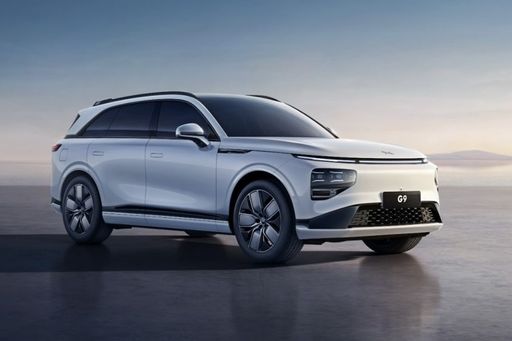
XPeng G9
Costs and Consumption
View detailed analysis
Engine and Performance
View detailed analysis
Dimensions and Body
View detailed analysis
Kia EV9
The Kia EV9 is a bold, boxy electric SUV that looks like it could swallow your luggage and the in‑laws, with an interior that feels more lounge than cockpit and a presence that makes smaller rivals suddenly feel shy. On the road it delivers calm long‑distance composure with enough shove to keep overtakes effortless, and its tech and practicality make it an easy, sensible choice for buyers who want electric without compromise.
details
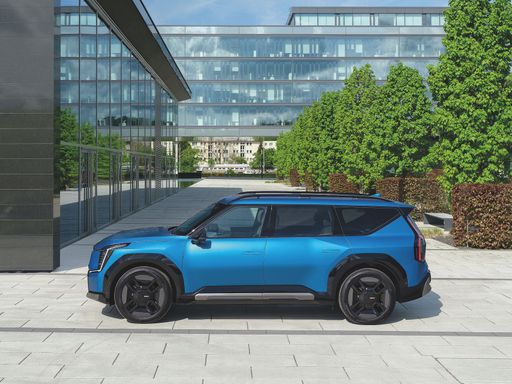

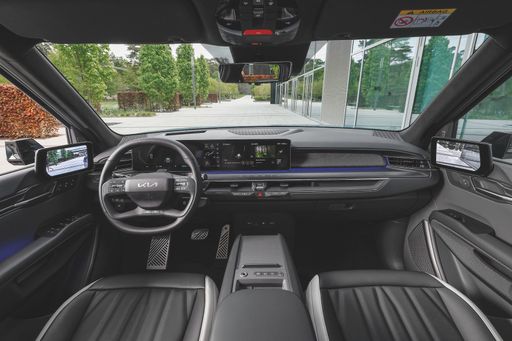
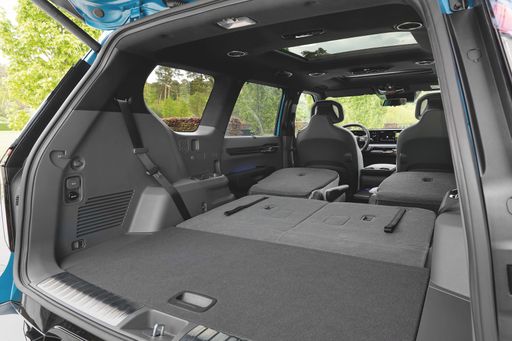
XPeng G9
The XPeng G9 feels like a confident leap into the electric SUV world, with sleek, purposeful styling and an interior that mixes modern tech with everyday comfort. On the road it’s calm and composed, serving up effortless pace and hushed refinement that turns long commutes into something you might actually enjoy — a strong pick for buyers who want electric convenience without compromise.
details
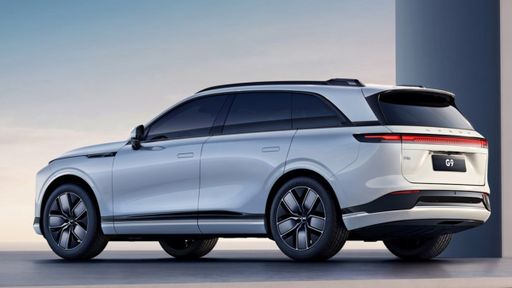
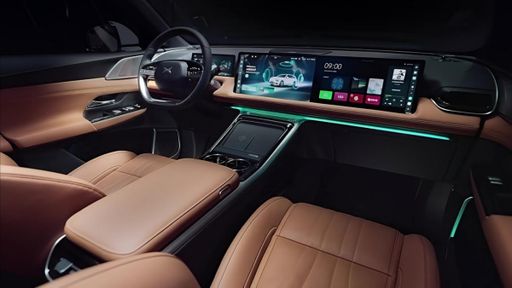
Costs and Consumption |
|
|---|---|
|
Price
53100 - 78000 £
|
Price
51100 - 62200 £
|
|
Consumption L/100km
-
|
Consumption L/100km
-
|
|
Consumption kWh/100km
19.5 - 22.8 kWh
|
Consumption kWh/100km
18.4 - 20.1 kWh
|
|
Electric Range
443 - 563 km
|
Electric Range
502 - 585 km
|
|
Battery Capacity
76.1 - 99.8 kWh
|
Battery Capacity
78.2 - 92.2 kWh
|
|
co2
0 g/km
|
co2
0 g/km
|
|
Fuel tank capacity
-
|
Fuel tank capacity
-
|
Dimensions and Body |
|
|---|---|
|
Body Type
SUV
|
Body Type
SUV
|
|
Seats
6 - 7
|
Seats
5
|
|
Doors
5
|
Doors
5
|
|
Curb weight
2392 - 2664 kg
|
Curb weight
2210 - 2395 kg
|
|
Trunk capacity
333 L
|
Trunk capacity
660 L
|
|
Length
5010 - 5015 mm
|
Length
4891 mm
|
|
Width
1980 mm
|
Width
1937 mm
|
|
Height
1755 - 1780 mm
|
Height
1670 - 1680 mm
|
|
Max trunk capacity
2318 - 2393 L
|
Max trunk capacity
1576 L
|
|
Payload
542 - 615 kg
|
Payload
-
|
Engine and Performance |
|
|---|---|
|
Engine Type
Electric
|
Engine Type
Electric
|
|
Transmission
Automatic
|
Transmission
Automatic
|
|
Transmission Detail
Reduction Gearbox
|
Transmission Detail
Reduction Gearbox
|
|
Drive Type
All-Wheel Drive, Rear-Wheel Drive
|
Drive Type
Rear-Wheel Drive, All-Wheel Drive
|
|
Power HP
204 - 508 HP
|
Power HP
351 - 575 HP
|
|
Acceleration 0-100km/h
4.6 - 9.4 s
|
Acceleration 0-100km/h
4.2 - 6.6 s
|
|
Max Speed
185 - 200 km/h
|
Max Speed
200 km/h
|
|
Torque
350 - 740 Nm
|
Torque
465 - 695 Nm
|
|
Number of Cylinders
-
|
Number of Cylinders
-
|
|
Power kW
150 - 374 kW
|
Power kW
258 - 423 kW
|
|
Engine capacity
-
|
Engine capacity
-
|
General |
|
|---|---|
|
Model Year
2023 - 2025
|
Model Year
2025
|
|
CO2 Efficiency Class
A
|
CO2 Efficiency Class
A
|
|
Brand
Kia
|
Brand
XPeng
|
Is the Kia EV9 offered with different drivetrains?
The Kia EV9 is offered with All-Wheel Drive or Rear-Wheel Drive.




